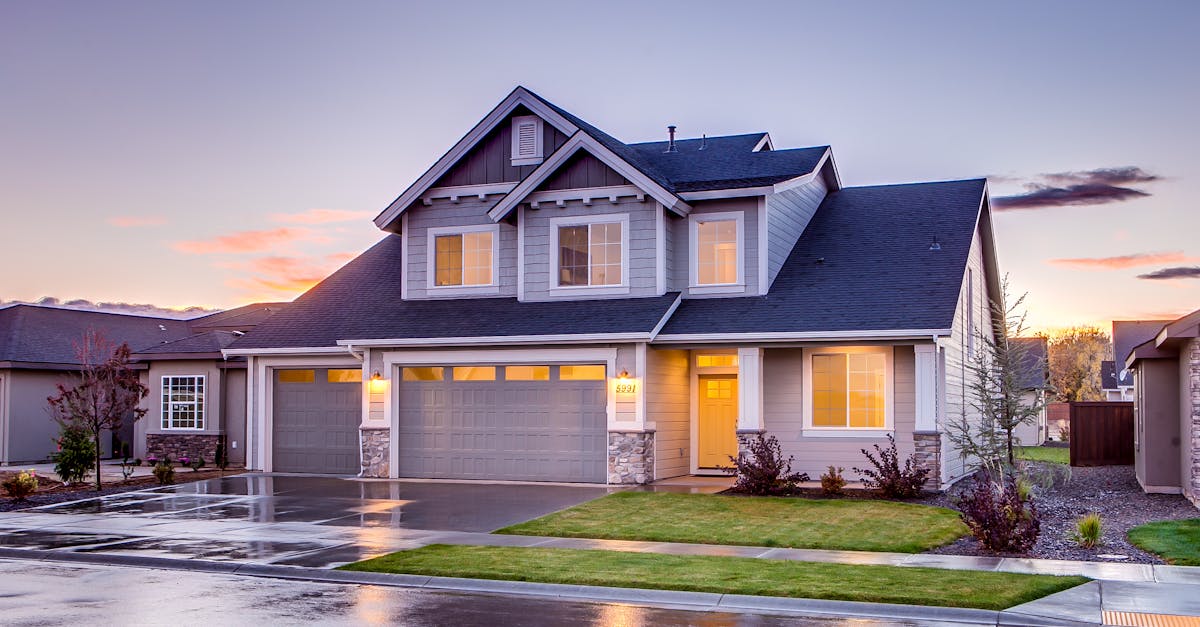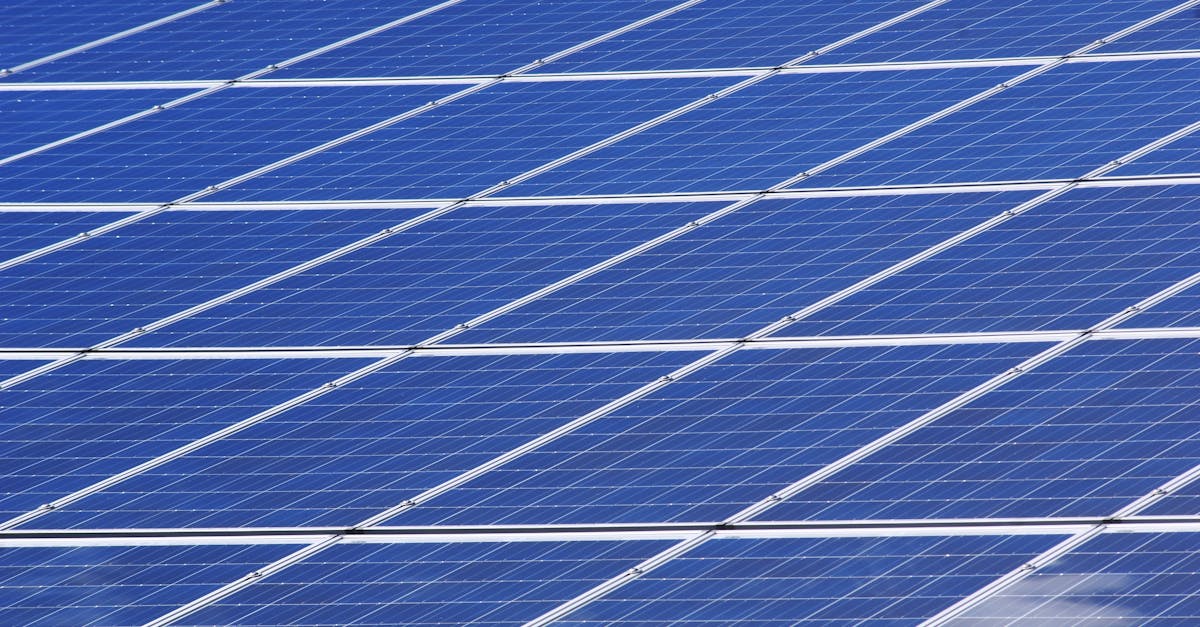Empowering Your Home: Sustainable Living Made Simple

Looking to embrace a sustainable and cost-effective lifestyle right at home? Dive into our comprehensive guide on reducing energy consumption and costs with these 5 practical tips for sustainable living. From understanding the benefits of energy efficiency to implementing smart home upgrades, optimizing energy consumption habits, and exploring renewable energy options, we’ve got you covered. Our encouraging advice will help you make positive changes, not just for your wallet but also for the environment. Embrace these empowering tips and join the movement towards a greener, more sustainable future.
1. Understanding Energy Efficiency
Thank you for reading this post, don't forget to subscribe!
Understanding energy efficiency is the first step towards a brighter, more sustainable future. By making simple changes in your daily routine and embracing efficient technologies, you can significantly reduce your energy consumption, shrink your bills, and contribute to a healthier environment. With the latest statistics and data on energy savings, it’s clear that each individual’s efforts can collectively make a profound impact. Energy efficiency isn’t just a buzzword; it’s a mindset that holds the power to transform the way we live. By choosing energy-efficient options, you’re not only enhancing your own lifestyle but also playing a crucial role in the larger fight against climate change and environmental degradation. Let’s embark on this journey together, where every positive change you make ladders up to real, meaningful progress for our planet.
The Benefits of Energy Efficiency
Embracing energy efficiency at home brings a myriad of benefits, not only for your immediate surroundings but also for the planet at large. By making conscious choices to reduce energy consumption, you’re not only cutting costs but also playing a pivotal role in conserving natural resources and minimizing environmental impact. The latest statistics and data on energy savings reveal an inspiring narrative of positive change, where small alterations in energy usage collectively contribute to significant reductions in carbon emissions and resource depletion. From lower utility bills to decreased strain on the power grid, the advantages of energy efficiency reverberate far beyond individual households, fostering a sustainable ethos that resonates globally.
Calculating Energy Consumption
Calculating your energy consumption is the first step towards taking control of your energy usage and making informed decisions that benefit both your wallet and the environment. By understanding how much energy your household consumes, you can pinpoint areas for improvement and identify energy-draining appliances that may be inflating your utility bills. Through a simple energy audit, you can gain insights into which devices are consuming the most electricity, allowing you to prioritize upgrades or adjustments that will yield the most significant savings. Empowered with this knowledge, you can make proactive changes that not only reduce waste but also contribute to a more sustainable, eco-friendly lifestyle. Take charge of your energy consumption and become a steward of both your finances and the planet.
2. Smart Home Upgrades and Technologies

Embracing smart home upgrades and advanced technologies paves the way for a more sustainable and energy-efficient future. By integrating cutting-edge solutions into your home, you can significantly reduce energy usage while enjoying modern comforts. The latest energy-efficient appliances and automated systems are designed to optimize energy consumption without sacrificing convenience, offering a win-win scenario for homeowners and the environment alike. From intelligent thermostats that learn your preferences to appliances that automatically adjust their energy usage based on real-time data, these innovations empower you to make impactful changes effortlessly. Through these smart upgrades, you not only enhance your living space but also contribute to a greener, more sustainable world.
Energy-Efficient Appliances
Investing in energy-efficient appliances is a game-changer for both your home and the environment. These cutting-edge devices are not only designed to perform efficiently but also actively contribute to lowering energy costs. The latest energy-efficient appliances integrate advanced technologies that optimize energy consumption, resulting in reduced utility bills without compromising on performance. From eco-friendly refrigerators and washing machines to energy-efficient air conditioners and lighting solutions, these appliances are crafted to deliver the same level of functionality while significantly reducing energy usage. By making the switch to these innovative devices, you’re not just enhancing your living space; you’re also championing sustainable living and setting a positive example for a greener future.
Smart Thermostats and Automated Systems
Smart thermostats and automated systems are the dynamic duo that revolutionize the way we manage energy consumption in our homes. By seamlessly integrating these cutting-edge solutions, you not only gain precise control over your home’s climate but also play a significant role in reducing energy waste. Smart thermostats are designed to learn your preferences, adjusting temperatures based on your routine and real-time data, ultimately leading to substantial energy savings. In addition, automated systems offer a hands-free approach to managing appliances and lighting, ensuring that energy is used efficiently and only when needed. These innovative products not only simplify your life but also make a tangible impact on the environment, helping you create a more sustainable home with minimal effort.
3. Optimizing Energy Consumption Habits
Optimizing energy consumption habits is not just a responsibility; it’s an empowering opportunity to make a real difference. By making simple adjustments in your daily routine, you can significantly minimize energy usage without sacrificing comfort. From turning off lights and unplugging devices when not in use to utilizing natural light and maximizing the efficiency of your heating and cooling systems, these small, conscious choices collectively lead to substantial energy savings. It’s about creating a lifestyle that’s mindful of energy consumption while still prioritizing comfort and convenience. By implementing these subtle changes, you’re not just reducing your ecological footprint; you’re also setting an encouraging example for others in your community, inspiring a ripple effect of positive change.
Energy-Saving Lighting Solutions
Switching to energy-saving lighting solutions not only reduces electricity usage but also creates a vibrant and environmentally conscious atmosphere in your home. LED bulbs, for instance, are a fantastic energy-efficient alternative to traditional incandescent bulbs, offering brighter illumination while consuming significantly less power. Similarly, compact fluorescent lamps (CFLs) are another brilliant choice that provides efficient lighting and lasts considerably longer. These options not only slash your electricity bills but also minimize your environmental footprint. Beyond just choosing the right bulbs, it’s essential to optimize your lighting usage. Simple practices like turning off unnecessary lights, utilizing natural light during the day, and incorporating motion sensors to automatically control lighting in unoccupied areas all contribute to substantial electricity savings. By setting a positive example for your household and engaging in these energy-saving practices, you’re not just reducing your carbon footprint. You’re also creating a comfortable, well-lit environment without the unnecessary strain on resources. It’s both rewarding and empowering to see the impact of energy-saving lighting solutions unfold within your home. From setting a warm ambiance to transforming the way you interact with your living spaces, these solutions pave the way for a more sustainable and cost-effective lifestyle. By embracing these changes, you become a beacon of inspiration for others, championing an eco-friendly mindset and harnessing the benefits of energy-efficient lighting solutions.
Effective Heating and Cooling Practices
Implementing efficient heating and cooling practices not only fosters a comfortable living environment but also plays a significant role in reducing energy consumption. When it comes to heating, ensuring your home is well insulated can make a remarkable difference. Properly sealed windows, insulated attics, and draft-free doorways can effectively maintain warmth indoors, reducing the need for constant heating. Furthermore, employing programmable thermostats can help regulate temperatures efficiently, ensuring that heating is only engaged when necessary, thereby saving energy and cutting costs. In terms of cooling, leveraging natural ventilation and utilizing ceiling fans are effective ways to maintain a comfortable indoor climate without overreliance on air conditioning. Additionally, regular maintenance of air conditioning units, such as cleaning or replacing filters, ensures optimal performance and energy efficiency. By implementing these simple yet impactful practices, you not only create an inviting and temperate home environment, but you also contribute to the larger effort to conserve energy and promote sustainable living. By adopting and promoting these efficient heating and cooling practices, you inspire others to join in the journey towards a more sustainable and environmentally conscious lifestyle. Embracing these changes sets the stage for a more energy-efficient, comfortable, and environmentally aware way of living, fostering harmony between personal comfort and environmental responsibility.
4. Home Insulation and Weatherproofing
Proper home insulation and weatherproofing are vital aspects of reducing energy waste and enhancing the overall comfort and efficiency of your living space. Adequate insulation, whether in the form of foam, fiberglass, or cellulose, helps maintain interior temperatures, preventing unnecessary energy loss through walls, attics, and crawl spaces. By sealing air leaks and addressing insulation gaps, you create a more sustainable and energy-efficient home, reducing the strain on heating and cooling systems while also lowering utility costs. In addition to insulation, weatherproofing is an essential component in fortifying your home against energy inefficiencies. Weatherproofing encompasses sealing gaps around doors and windows, applying weather stripping, and ensuring that exterior surfaces are effectively shielded from the elements. These measures not only prevent heat loss in the winter and heat gain in the summer but also contribute to a more consistent and comfortable indoor environment. By delving into the realm of home insulation and weatherproofing, you’re not only nurturing a more sustainable lifestyle but also actively fostering a healthier and more cost-effective living environment for you and your loved ones. These efforts play a pivotal role in reducing energy waste while creating a harmonious balance between your daily comfort and your commitment to environmental stewardship.
Insulation Materials and Installation
Proper insulation is a cornerstone of energy efficiency, providing a shield that maintains indoor temperatures and reduces the strain on heating and cooling systems. Understanding different insulation materials and their installation process equips homeowners with the knowledge needed to elevate their homes to new standards of energy conservation. From fiberglass and cellulose to foam and reflective insulation, various materials offer unique properties to suit different areas of the home. Installing or upgrading insulation in attics, walls, and crawl spaces is a transformative step towards enhancing both the comfort and sustainability of your living space. Identifying areas for improvement in insulation can lead to notable energy savings and improved overall comfort within the home. By assessing vulnerable spots such as drafty windows, uninsulated walls, and ineffective attic insulation, homeowners can strategically prioritize areas for enhancement. Whether it’s through DIY efforts or professional assistance, addressing these insulation gaps brings about substantial benefits, including lower utility bills, a more consistent indoor temperature, and a reduced environmental impact. By delving into the world of insulation materials and installation, homeowners embark on a journey of enhanced living comfort and environmental responsibility. Empowered with the understanding of different materials and installation techniques, they can actively contribute to energy conservation efforts in their homes. Taking steps to identify and improve insulation not only amplifies the living experience within the home but also fosters a more sustainable and eco-conscious way of life.
Weatherproofing for Energy Efficiency
Weatherproofing is a pivotal element in bolstering energy efficiency within your home. By addressing leaks, drafts, and vulnerabilities, you’re setting the stage for a more sustainable and comfortable living environment. Weatherproofing plays a crucial role in maintaining consistent indoor temperatures, reducing the load on heating and cooling systems, and ultimately lowering energy consumption. As a homeowner, you have the power to make impactful changes through simple do-it-yourself (DIY) weatherproofing techniques, which not only amplify living comfort but also lead to noticeable energy savings. DIY weatherproofing strategies range from sealing gaps around doors and windows to adding weather stripping and installing door sweeps. By taking these steps, you actively fortify your home against the elements, minimizing the impact of external weather on your indoor climate. Furthermore, implementing these measures brings about a welcomed reduction in energy bills, ensuring that your home is not just cozy but also cost-effective. These efforts not only contribute to a more sustainable and energy-efficient living space but also reflect a proactive approach to environmental conservation. By embracing weatherproofing for energy efficiency, you’re not just making your home more resilient; you’re also contributing to the broader movement for sustainable living. These simple DIY strategies empower you to create a more comfortable and eco-conscious home environment, advocating for a balance between personal comfort and environmental responsibility.
5. Renewable Energy Options for Homeowners
Renewable energy options offer homeowners the chance to embrace sustainability while reaping the benefits of cost-effective energy production. By integrating renewable sources like solar panels into your home, you can significantly reduce your dependence on traditional energy grids while contributing to a cleaner, greener environment. Solar panel installation is an accessible and increasingly affordable means of harnessing renewable energy, offering an efficient way to generate electricity while reducing your carbon footprint. Furthermore, exploring alternative energy solutions such as wind turbines and geothermal systems presents an exciting opportunity to diversify your energy sources and further reduce environmental impact. These options not only provide a sustainable approach to energy production but also open up avenues for potential cost savings and greater energy independence. Homeowners who embrace renewable energy options aren’t just investing in their own sustainable future; they’re leading the way towards a more environmentally conscious world. By adopting these renewable energy sources, you’re not only taking charge of your own energy needs but also demonstrating a commitment to reducing reliance on non-renewable resources and mitigating the effects of climate change.
Solar Panel Installation and Benefits
Solar panel installation offers a multitude of benefits, transcending both financial savings and environmental impact. Harnessing solar energy significantly cuts down on electricity bills, providing homeowners with long-term cost-saving advantages. The installation process itself, facilitated by professional teams, has become increasingly efficient and affordable, making the transition to solar power more accessible than ever. Furthermore, the advancement in solar technology ensures that homes can now seamlessly integrate solar panels into their structure, creating a sleek and contemporary visual appeal while bolstering energy efficiency. The benefits of solar energy extend beyond just financial gains. By embracing solar power, homeowners actively contribute to reducing carbon emissions and minimizing their environmental footprint. Solar panels offer a clean and renewable energy source, helping to alleviate the strain on traditional energy grids and promoting a sustainable way of life. As individuals join the movement towards solar energy adoption, they not only cultivate a more independent energy lifestyle but also pave the way for a brighter, greener future for generations to come. By opting for solar panel installation, homeowners are not simply making a savvy financial investment; they are embarking on a transformational journey towards sustainability and environmental stewardship. Embracing solar energy goes beyond immediate benefits, shaping a responsible and forward-thinking approach to energy consumption that redefines the meaning of home ownership and environmental impact.
Wind Turbines and Other Home Energy Solutions
Exploring alternative energy solutions such as wind turbines and geothermal systems presents homeowners with an exciting array of options that significantly reduce reliance on traditional energy sources. Wind turbines, for instance, enable homeowners to harness the power of wind, converting it into renewable energy for household use. When strategically positioned, these turbines can efficiently generate electricity, offering both economic and environmental benefits. Similarly, geothermal energy presents a sustainable approach, utilizing heat from beneath the earth’s surface for heating and cooling purposes, thereby minimizing the need for conventional HVAC systems and lowering energy consumption. Beyond wind and geothermal solutions, homeowners can also consider other alternative energy options such as micro-hydro power or biomass energy systems. These alternatives offer versatile means of generating renewable energy, empowering homeowners to take charge of their energy needs while reducing their environmental impact. Embracing these diverse energy solutions not only contributes to ongoing sustainability efforts but also elevates the energy independence and self-sufficiency of homeowners. By embracing this diverse palette of alternative energy solutions, homeowners open up avenues for greater control over their energy consumption and a reduced impact on the environment. These options pave the way for a more sustainable and independent lifestyle, illustrating the potential for innovation and personal responsibility in shaping a world powered by clean, renewable energy.
Quiz
- What are some benefits of energy-efficient appliances?
- a) They increase energy costs
- b) They reduce energy usage and contribute to sustainability
- c) They have no impact on the environment
- d) They consume more electricity than traditional appliances
- How do smart thermostats support energy efficiency?
- a) They have no impact on energy consumption
- b) They learn your preferences and regulate temperatures efficiently
- c) They always keep the temperature at a fixed setting
- d) They require excessive energy usage to function
- What are the advantages of weatherproofing your home for energy efficiency?
- a) It increases energy waste
- b) It maintains consistent indoor temperatures and reduces the strain on heating and cooling systems
- c) It has no impact on energy usage
- d) It causes higher electricity bills
- b, 2. b, 3. b




